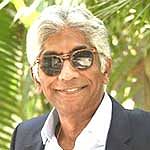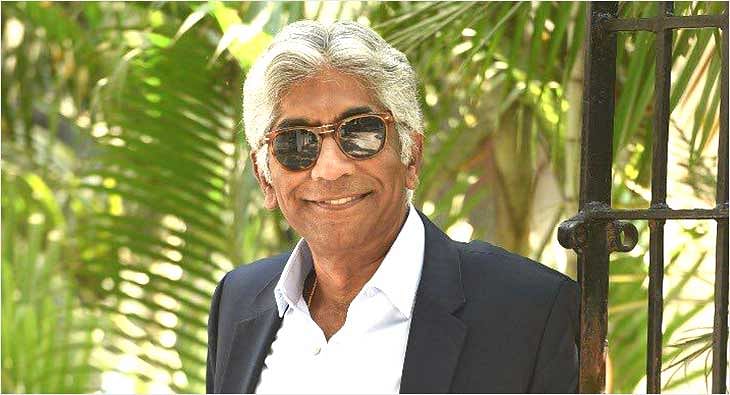The ethical challenges in business journalism
Trusting the inherent goodness of people or laying down firm codes of conduct, ethics in business journalism raises some intense debates in the industry

When it comes to ethical challenges in business journalism, the media industry has some strong views on it. While some feel that ethics is more of one’s inherent sense of fairness and integrity, others want definitive codes of conduct laid down to rule out any ambiguity in the way business journalists should function.
 AK Bhattacharya, Editor, Business Standard, subscribes to the former view, when he said, “The way I look at ethical challenges in business journalism, I don’t see them as challenges. To me, ethics in business journalism is part and parcel of business journalism. If it is posing a challenge, then it is a reflection of the system, the way we function, the way we organise, the way we do our reporting. What is really ethics? It is not really what is right or wrong, neither is it part of religious belief. Ethics is not defined by law, in fact, it even goes beyond law. It is an inherent sense of fairness, honesty and integrity. Code of conduct is not to be confused with ethics.”
AK Bhattacharya, Editor, Business Standard, subscribes to the former view, when he said, “The way I look at ethical challenges in business journalism, I don’t see them as challenges. To me, ethics in business journalism is part and parcel of business journalism. If it is posing a challenge, then it is a reflection of the system, the way we function, the way we organise, the way we do our reporting. What is really ethics? It is not really what is right or wrong, neither is it part of religious belief. Ethics is not defined by law, in fact, it even goes beyond law. It is an inherent sense of fairness, honesty and integrity. Code of conduct is not to be confused with ethics.”
 Agreeing with him, Dilip Cherian, Founding Partner, Perfect Relations, felt that the issue of ethics and the way it had to be defined involved the very core of the individual. “It is a sense of ethics as opposed to code of conduct. There are no moral blueprints,” he added. He felt that good governance was important since with the advent of social media, the chances of any malpractice being found out were more.
Agreeing with him, Dilip Cherian, Founding Partner, Perfect Relations, felt that the issue of ethics and the way it had to be defined involved the very core of the individual. “It is a sense of ethics as opposed to code of conduct. There are no moral blueprints,” he added. He felt that good governance was important since with the advent of social media, the chances of any malpractice being found out were more.
 Taking a contrary view, R Sukumar, Editor, Mint, stressed, “You can’t take the inherent goodness of people for granted. You need to have some rules and codes that are all encompassing.” These codes of conduct needed to be communicated to whom one was covering. According to him, “Ethics is a system of moral principles. We cannot make people good or bad, but we can influence them while as work.” He further said that if an organisation did not follow a certain code, then it could not stand up to the reports it carries. “We need to remember that it’s just a job and not a crusade. The code ensures that you never lose objectivity,” he maintained.
Taking a contrary view, R Sukumar, Editor, Mint, stressed, “You can’t take the inherent goodness of people for granted. You need to have some rules and codes that are all encompassing.” These codes of conduct needed to be communicated to whom one was covering. According to him, “Ethics is a system of moral principles. We cannot make people good or bad, but we can influence them while as work.” He further said that if an organisation did not follow a certain code, then it could not stand up to the reports it carries. “We need to remember that it’s just a job and not a crusade. The code ensures that you never lose objectivity,” he maintained.
 For BV Rao, Editor, Governance Now, ethics defined what one was. He, too, felt that organisational ethics was important. “What matters is where we stand as an organisation. If this idea of what you are is clear, there is no confusion,” he maintained, adding, “We have certain accountability towards the people, since what we write can create or destruct others.”
For BV Rao, Editor, Governance Now, ethics defined what one was. He, too, felt that organisational ethics was important. “What matters is where we stand as an organisation. If this idea of what you are is clear, there is no confusion,” he maintained, adding, “We have certain accountability towards the people, since what we write can create or destruct others.”
For Bhattacharya, ethics was an individual matter, while code of ethics was an organisational matter imposed on individuals. He maintained, “Ethics goes much beyond and is much larger than any code or rules.”
Meanwhile, Sukumar stressed that rules set behavior in an organisation. Speaking about Mint, he said that the paper had drafted a code of conduct in 2007. “No reporter is entirely objective. A strong line editor will ensure there’s objectivity in a report. These are hygiene issues,” he added.
Cherian too felt that a clear cut set of codes of conduct gave a clear idea of what the set perimeter was.
All the industry experts were unanimous in the view that the government should stay out as far as setting codes for news organisations was concerned. BV Rao insisted that the government should definitely stay out and that self-regulation was the way forward. At the same time, he said that an industry level code was needed rather than an individual one. Elaborating on this point he remarked, “Our self-regulation is more about keeping quiet. There is no code for the journalism profession in India, people are only protecting their own interests so that they are not in the direct line of fire.”
On the other hand, Bhattacharya felt that an industry wide code was not the answer here. An industry body might form the rules that suit it, but might not necessarily be ethical, he maintained. According to him, the answer probably lay in the market. “Readers are getting more discerning by the day,” he noted.
Sukumar, too, found it worrisome of the government stepped in. One check on news media, according to him, would be if advertisers moved away from media that did not practice ethical codes.
AK Bhattacharya, BV Rao, Dilip Cherian, and R Sukumar were speaking at the day-long work shop on ‘Reporting on Business in a Global World’ for business journalists, held in Delhi on February 23, 2012. The workshop was organised by the High Commission of Canada, in collaboration with exchange4media.
Read more news about Digital Media, Television Media, Out of Home Advertising, Print Media, Latest Advertising India
For more updates, be socially connected with us onInstagram, LinkedIn, Twitter, Facebook, Youtube, Whatsapp & Google News
DD Purkayastha’s maiden book to be launched in New Delhi today
The launch of ‘Headline: Memoir of a Media CEO’ will be held at IIC, New Delhi
DD Purkayastha’s memoir and maiden book ‘Headline: Memoir of a Media CEO’ will be launched in New Delhi today (April 24).
The first leg of the book launch was held in Kolkata on April 18. The event was attended by renowned media personalities including Dhruba Mukherjee, CEO of ABP. Following the book launch, Sankarshan Thakur, the Editor of The Telegraph, had a fireside chat with Mr Purkayastha.
DD Purkayastha, the former long-standing CEO of ABP Group, is one of the most respected CEOs in the Indian media landscape. He has written his maiden book titled "Headline Memoir of a Media CEO".
‘Headline’ is the story of a small-town boy from a remote town who reaches the highest rung of the glitzy media corporate house. The story is intertwined between Mr Purkayastha’s life and the media.
DDP, as Mr Purkayastha is known, is serving on the board of ABP Limited post his tenure as a CEO at ABP Group.
Hollywood producer Ashok Amritraj – Forever ahead of the game
Guest Column: Author Dr. Bhuvan Lall pens down the success story of Ashok Amritraj
On the evening of 13 December 2018, as the lights slowly dimmed, and the music softly faded, the guests were requested to take their assigned seats in the large hall of a hotel in suburban Mumbai. The French Ambassador to India Alexandre Ziegler and many major stars and filmmakers were in the audience to witness a special ceremony. The stage was set for the exclusive event to commence. With the television cameras in position, it was time for action. At the request of the presenter, a tall athletically built handsome man immaculately attired in a dark Jodhpur jacket elegantly stepped on the stage. He was introduced as the Hollywood producer and former tennis champion of India, Ashok Amritraj. That evening, he was being honored by the Government of France. The French Minister of External Affairs Jean-Yves Le Drian had flown in from Paris to officially decorate Ashok with the French distinction of a Chevalier (Knight) of the Ordre National du Merite for his contribution to the arts in France and the world. Thunderous applause followed. In his acceptance speech, Ashok first thanked his mother for being his lifelong inspiration and then added, “I am humbled and privileged to receive this honor. I would like to thank the government of France for recognizing my journey in the world of cinema. This award is a tribute to the growing cooperation between the film industries of France and India, an idea whose time has come.”
Soft fade to a distant past when Ashok the youngest of the famous Amritraj brothers along with his siblings Vijay and Anand made India proud with their magnificent careers in international tennis. Ashok was the finalist in the junior Wimbledon and won the World Team Tennis championships with Jerry Buss’s Los Angeles Strings. Inspired by the Hollywood movies he had seen while growing up in Chennai Ashok hung up his tennis racket for a different ball game. In the early 1980s, he decided to enter the incredibly attractive but tremendously challenging entertainment business as a film producer.
An Indian immigrant in America, Ashok launched a start-up film production company in vanity-charged Los Angeles with nothing more than a car, an office desk, a telephone, and a Rolodex network of powerful showbiz contacts. His dream was to produce a few high-grossing Hollywood motion pictures that were released globally. However, the young enterprising India-born producer soon found out Hollywood’s playground operated on very different rules from the tennis courts. The great age of the Hollywood moguls and old-time studio czars was over. The Hollywood of the 1980s was characterized by its meanness, ruthlessness, and aggressiveness which didn’t exist before. Consequently, the initial years were no fun and games and Ashok struggled to get his scripts turned into movies. Hollywood legends played tennis with him in the floodlit courts of their enormous mansions off Sunset Boulevard but cold-shouldered the scripts of the Indian producer. However, Ashok, trained to keep his eye on the ball was not deterred by the abrasiveness of the studio executives, talent agencies, and the legions of suits in the Hollywood system. Eventually, his self-belief, posh manners, sense of humor, authentic light charm, and strong Indian family values served him well. He gradually cultivated the super elite of Hollywood. Doors that had been firmly shut somewhat opened, invites to distinct industry events glided in, and his proposed projects were written about in Hollywood’s trade press. But he was still considered an outsider.
In 1984 through determination, inventiveness, and charisma Ashok managed to get his first Hollywood film off the ground with a meager half a million dollars. Then he went on to associate with the famous filmmaker Roger Corman. A quick learner Ashok turned out to be a terrific problem solver and figured out how to evaluate the financial prospects of a script, fix a budget, convince leading stars to bite on a project, find international distribution, retain the final cut, and if required gracefully fire a director. He did all the heavy lifting himself and soon his name appeared in the credit scrolls of several movies ranging from hits earning top dollars to embarrassing misfires. In these years the prolific producer lived a high-profile swashbuckling life and was often seen in the company of iconic stars including Frank Sinatra, Sidney Poitier, Harry Belafonte, and Roger Moore. Fond of Indian food he frequently savored Indian delicacies at Paul Bhalla’s Cuisine of India near the UCLA campus or at Deep Sethi’s Bombay Palace in upscale Beverly Hills accompanied by his growing circle of celebrity friends.
On his annual business trip to the Festival de Cannes in 1989, Ashok fortuitously bumped into a Belgian actor and martial arts professional who had in 1984 dropped by his office in Hollywood with a portfolio of pictures. The two soon reunited and embarked on a film project that was partly shot in Hong Kong. Their movie Double Impact released in 1991 was a global blockbuster hit grossing over US$ 120 million. The muscles from Brussels Jean Claude Van Damme became a household name overnight plus a US$ 20 million Hollywood action hero. Van Damme disclosed, “Like Arnold Schwarzenegger I did not mind being known as the guy with a different accent. That’s what brought me close to Ashok, who too was an outsider and had wandered to Hollywood from India”. The success of the breakthrough film catapulted Ashok into the topmost bracket of independent producers in Hollywood. He became the first Indian producer to be invited as a voting member of the Academy of Motion Pictures Arts and Science (Oscars). Ashok had by then paid his dues in Hollywood and was irrevocably respected as a major industry power player. Charlton Heston, Oscar winner and the megastar of Ben Hur and Ten Commandments had once stated, “Ashok came to me for advice on launching his film production company and I said, Ashok if you do as well as a film producer as you have as a tennis player you have nothing to worry about. Well that turned out to be true…”.
Twenty-five years ago, Ashok ambitiously founded Hyde Park Entertainment to develop, finance, and produce entertainment products for the world market. Hyde Park’s big-budget productions have attracted the Super A list and Oscar-winning talent of Hollywood including Angelina Jolie, Antonio Banderas, Bruce Willis, Cate Blanchett, Danny Devito, Don Cheadle, Dustin Hoffman, Kate Hudson, Kevin Bacon, Kurt Russel, Jennifer Aniston, Idris Elba, Michelle Williams, Richard Gere, Robert De Niro, Susan Sarandon, Sylvester Stallone, among others. Ashok’s box office triumphs include Ghost Rider: Spirit of Vengeance starring Nicolas Cage; Walking Tall featuring Dwayne Johnson; Premonition with Sandra Bullock; and the $164M-plus grossing Steve Martin-Queen Latifah hit comedy Bringing Down the House. Hyde Park’s critically acclaimed features are Shopgirl starring Steve Martin and Claire Danes and 99 Homes featuring Andrew Garfield and Laura Dern.
As the Chairman and CEO of Hyde Park, Ashok displays an overwhelming combination of focus, brilliance, showmanship, and audacity in his business deals. He has slowly but solidly built his privately held Hyde Park Entertainment Group, into a financially successful and award-winning cutting-edge independent alternative to the traditional Hollywood system. In the era of streamers and AI, Hyde Park has closed deals with Universal, Paramount, Sony, Apple+, and Netflix. Ashok’s company has grown to be a globally recognized brand and a creative powerhouse operating from its headquarters in Los Angeles with offices on three continents. In 2013, Jean Claude Van Damme flew into India for the first time in his life to launch his longtime associate Ashok’s autobiography ‘Advantage Amritraj’. Unveiling his extraordinary life as a Wimbledon tennis player and a multi-billion-dollar film producer the book is a compelling read providing a glimpse into the life of India’s most successful export to Hollywood.
Exceedingly proud of his Indian roots, Ashok in his early years in Hollywood chaired the Indians in American Media Association formed by Krishna Shah, Jagmohan Mundhra, Mira Advani, Raju Patel, and a few others, to promote Indian interests. He is a pioneer in bridging Hollywood and India and back in 1989 produced Bloodstone filmed in Bengaluru starring Rajnikant in the lead along with Brett Stimely and Anna Nicholas. In 1998, Ashok produced the multi-lingual Hindi and Tamil film, Jeans and Indian entry for the foreign language Oscar, starring Aishwarya Rai with music composed by A.R. Rehman. Ashok also produced the special feature documentary, Louder Together narrated by Hugh Jackman, chronicling the iconic 2016 Global Citizen Festivals in New York's Central Park and Mumbai’s BKC featuring a speech by Indian PM Narendra Modi. Hyde Park Entertainment is expanding its production operations by adding an Asian base in Chennai. His company is developing a franchise of films based on Maximum City by Suketu Mehta and a drama series adaptation of Shweta Bachchan Nanda’s Paradise Towers. Ashok’s life is the stuff Hollywood dreams are made of and the media often refers to him as the Maharaja of Hollywood. Shah Rukh Khan in a television interview added, “To me, who’s who (in Hollywood) is only Ashok… he’s been doing it for years maybe ahead of his time. And taking cues from great personalities like Ashok we can bring Indian cinema to the West”.
As Ashok’s business flourished multifold, he moved into an exquisite home with a stunning view in a gated community in Bel Air - the most exclusive neighborhood of Hollywood housing legendary film personalities and the most formidable corporate giants. Here he is usually found sitting in his study assessing scripts and deal memos, surrounded by Picassos, Monets, full-sized posters of his movies, framed pictures with heads of state and Hollywood icons, along with several global accolades including an Honorary Doctorate from the University of East London and the International Emmy award that he won for Lost Christmas. On most weekends he watches the latest movies in the state-of-the-art screening room in his house or takes out his favorite Bentley for a drive in the hills and more importantly, makes time to play tennis with his Hollywood friends. Former CEO of MGM, Chis McGurk recalls, “I’ve also played a lot of tennis with him (Ashok) over the years, but I’ve never won. He never lets me win. He’s very competitive”.
After all these years of being on top of his game, Ashok has remained a private and down-to-earth figure in the Hollywood universe of ego-addled narcissists. His approach to life remains professional, non-judgmental, and sincerely spiritual. Playing the real-life role of a supportive family man he regularly explores India, Africa, and Europe on holidays with his wife Chitra, and their children Priya and Milan. He has silently revealed himself to be a person with a passion for philanthropic activities on a global scale. He was elected a member of the Board of Governors of Cedars-Sinai Medical Center, the leading hospital facility in California, and was appointed United Nations India’s Goodwill Ambassador for the Sustainable Development Goals in 2016. The Asia Society recently presented Ashok with the prestigious Asian Gamechanger Award.
Fading back into present-day Hollywood, Ashok in his trademark black suit walks into Spago restaurant in Beverly Hills where the film industry’s luminaries like to conduct business. He is courteously ushered by the maître d’ to his usual table with a commanding view of the packed restaurant. Hollywood is back in business after the pandemic and the writer's strike. As the owner of Spago, the celebrity chef Wolfgang Puck arrives to greet one of his favorite patrons Ashok switches off his phone that has been ringing constantly. The Festival de Cannes is just weeks away and it’s one the busiest times of the year for Ashok. Right through the past week dinner invitations and requests for meetings have poured in from Arab and European royalty, tech billionaires from Silicon Valley, Wall Street bankers, Asian business tycoons, globally known stars, award-winning filmmakers, top diplomats, friends from Indian filmdom and scores of celebrities who are heading to the South of France for the razmataz that is the Festival de Cannes. Known for his extravagant parties on yachts last year at Cannes Ashok hosted the most sought-after event on the Croisette for his upcoming project Night Boat to Tangiers starring Michael Fassbender to be directed by Oscar-winner James Marsh. And when Michael Douglas landed at the Bharat pavilion at Cannes, he was soon on a phone call with Ashok as both friends enquired about each other’s whereabouts and well-being. At this year’s Festival de Cannes Ashok has his hands already full with some high-profile crème de la crème projects. Hyde Park’s forthcoming films include The Sanatorium starring Anne Hathaway, Joy Luck Club 2 – the sequel to the groundbreaking and heartwarming Asian box-office hit, the feature adaptation of Richard Wright’s novel The Man Who Lived Underground and Hip-Hop Cop created by Oscar winner Kevin Willmott.
In the glamorous, fast-moving, and exhilarating Hollywood ecosystem, the average shelf life for a successful producer usually ranges from a weekend to just over a decade. In 2024, Ashok with over 120 movies and more than US$ 2 billion in global gross, celebrates an incredible forty successful years in Hollywood. Ashok’s journey is about an immensely talented self-made Indian who reached the pinnacle of the global entertainment industry against all odds. And his best is yet to come. Film Producer Ashok Amritraj remains one of the greatest success stories in Indo-American history and India’s one and only Ambassador in Hollywood over several decades.
Dr. Bhuvan Lall is the biographer of Subhas Chandra Bose and Har Dayal and the author of India on the World Stage. He can be reached at writerlall@gmail.com
Disclaimer: The views expressed here are solely those of the author and do not in any way represent the views of exchange4media.com


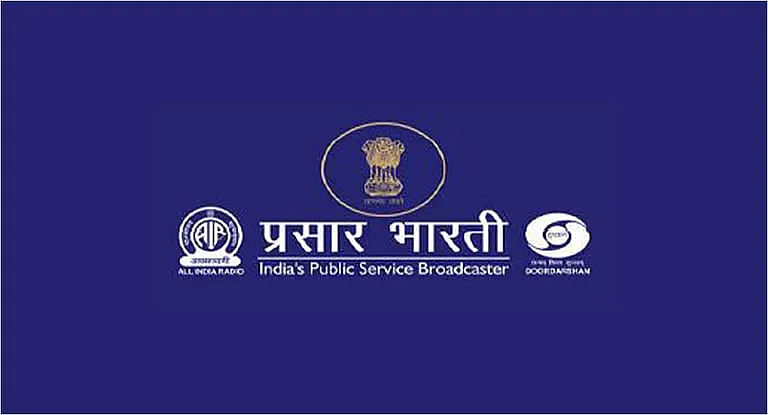
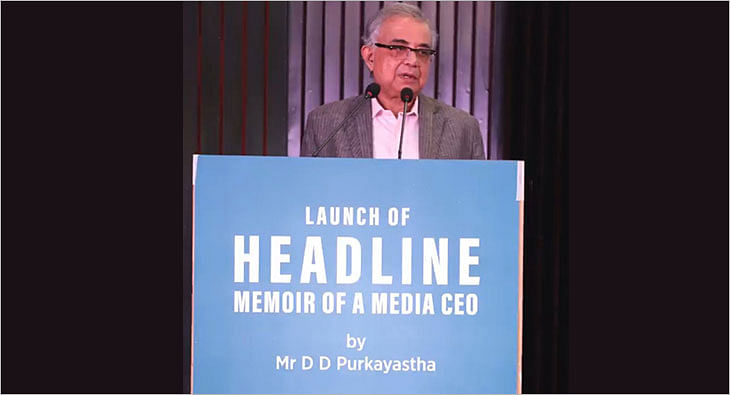
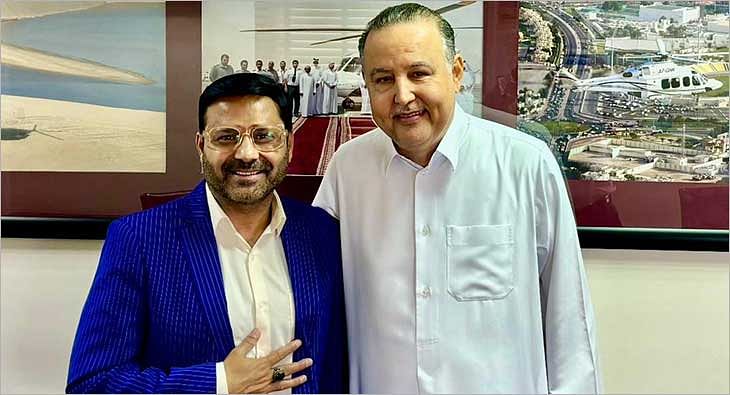
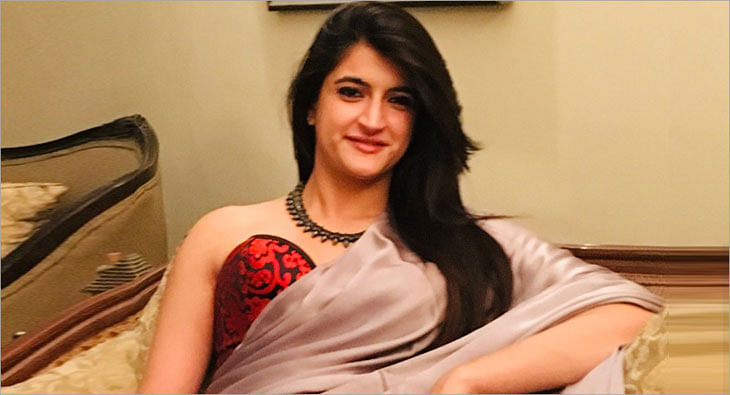





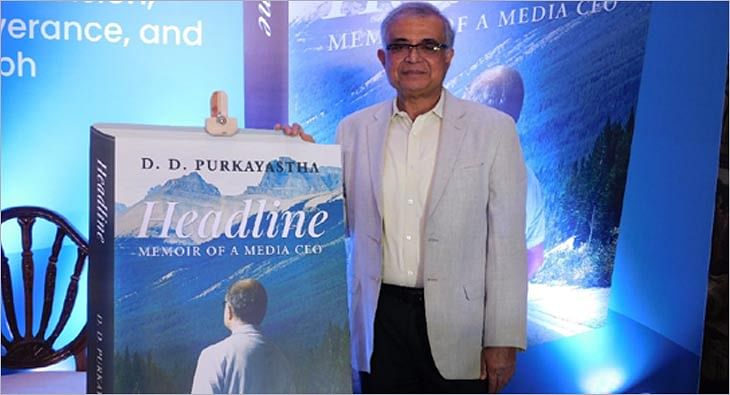
 Share
Share